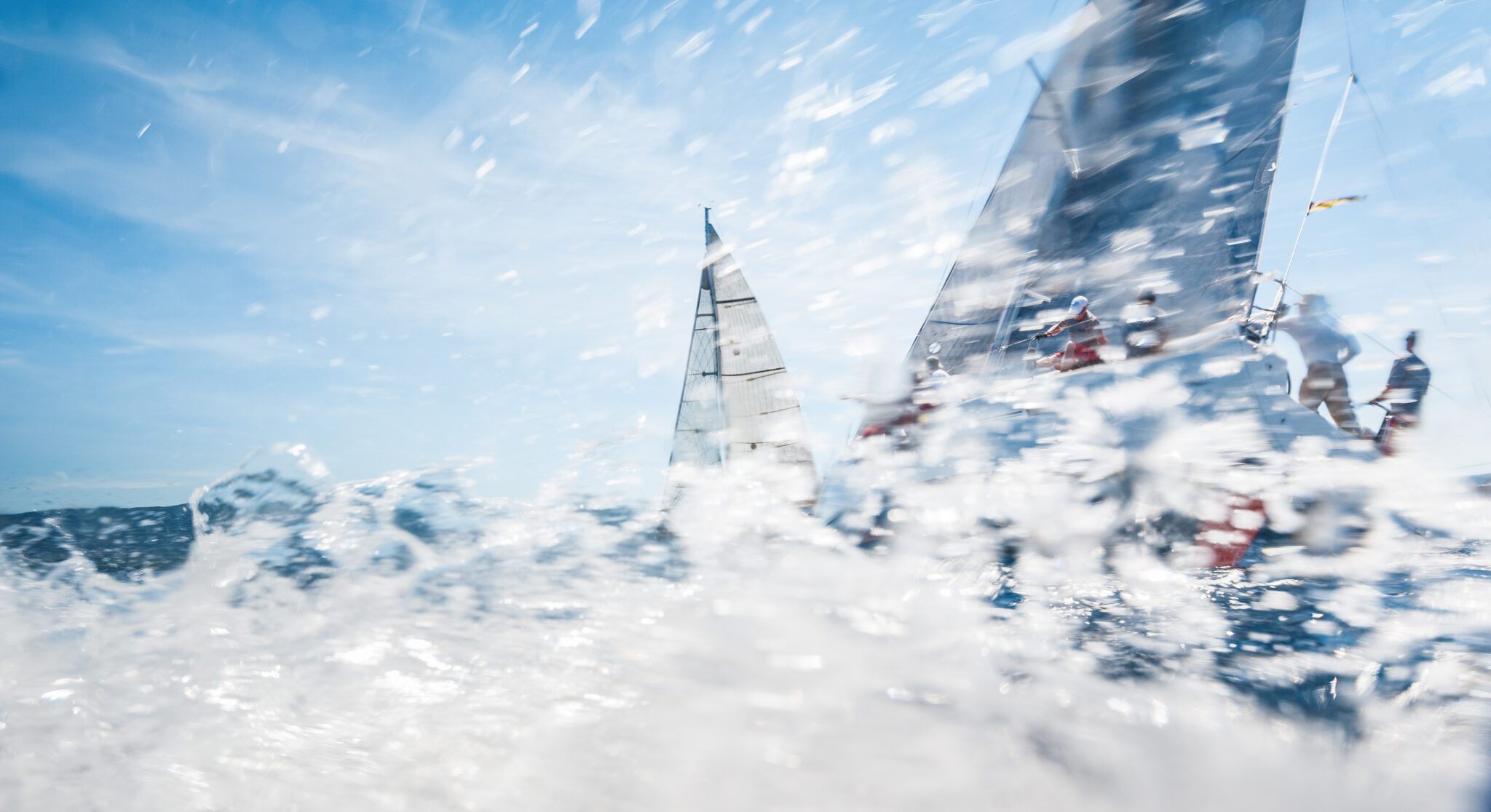Diverting Waste and Bringing The Community Together Go Hand in Hand in the Land Down Under
Royal Akarana Yacht Club, Auckland, New Zealand
With a dedicated Green Team and a solid sustainability plan, the 49er, 49erFX and Nacra 17 World Championships held at the Royal Akarana Yacht Club in Auckland, New Zealand achieved Platinum Level Clean Regatta status. Throughout the nine-month planning process, the incredibly hard working and ambitious Clean Regatta organizers Ulrika Wilcox, Sandy Dawson and Debbie Meech working closely with Event Director Peter Dawson and Regatta Secretary Jude Eades, considered all environmental aspects and sustainability initiatives to undertake during the event.
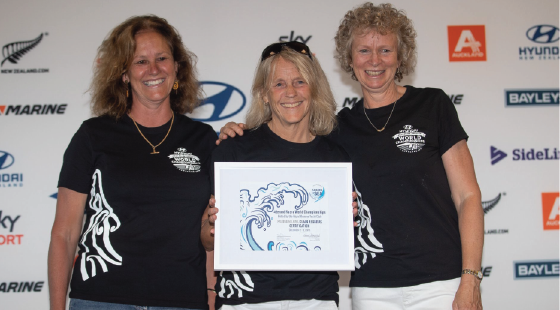
While the regatta was only eight days long, many sailors arrived up to twenty days in advance, and the Green Team was prepared to provide support all 29 days. The Green Team educated more than 400 sailors, 130 coaches, and 150 volunteers about the threats impacting the local environment and were also able to leave a blueprint for how future events in the region can replicate and expand upon their sustainability efforts.
Diverting Waste from the Landfill and Environment
Akarana Sailing Club set an ambitious measure in their initial sustainability plan to divert 50% of all the waste generated at their event from entering the landfill. To accomplish this, the Green Team and regatta organizers established a strong relationship with their waste contractor to promote composting and recycling throughout the event. Food waste was sent to a local processing plant where it was composted and distributed to local farmers and growers. According to organizers, “The early stages of the event featured high landfill rates due to the disposal of packaging materials but as the event continued and composting efforts increased (while packaging waste leveled out), the overall waste diversion increased dramatically.” Less than 50% of all the waste generated ended up in the landfill, as 21% was composted and 36% was recycled.
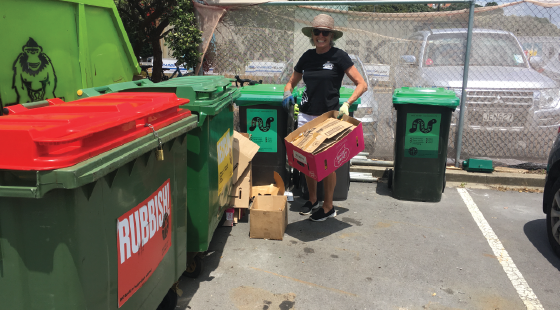
To minimize single-use plastics, organizers refused to sell disposable water bottles and instead provided metal refillable bottles and water refill stations to participants. Some food vendors arrived with plastic bottles for sale but immediately removed them when asked. To spread the message, the Green Team used the event app and other forms of regatta-specific communication. The Green Team also noted that even with messaging about the negative impacts of single-use water bottles and the initiatives undertaken to reduce single-use plastic at the event, a lot of single-use plastic bottles were disposed on the last day of the regatta. However, organizers estimated that their efforts saved over 36,000 plastic water bottles from entering the landfill over the course of 29 days.
The commitment of the Green Team to supervise the rubbish, recycling and composting sites and to ensure the water filling stations were topped off was paramount to the success of diverting waste from ending up in the landfill or environment over the duration of the regatta.
Showcasing Sustainability Through Art and Awards
The 49er, 49erFX and Nacra 17 World Championships raised awareness about the local environment and sustainability initiatives through art and contests. Regatta organizers set up a television with a rolling display of the unique wildlife native to New Zealand. Additionally, a local sailing parent printed and displayed photographs of rubbish and impacted wildlife she’s found on her local beach. This photo display, entitled ”Daily Walks With A Purpose” served to drive home the impact plastic waste was having on New Zealand’s natural beauty. Expanding on the photo display, the Green Team started a photo competition “Sustainable Oceans” to encourage sailors, coaches, volunteers and the public to submit their own photographs of rubbish they had witnessed in the ocean.
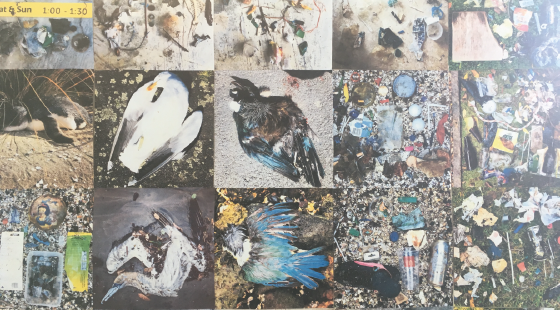
Additionally, the Green Team created a perpetual trophy for Outstanding Environmental Contribution to be passed on annually at future world championships. The trophy was designed and crafted by Mike Pearce, a boat builder in Auckland, from a piece of a carbon Nacra mast that was damaged in a storm at Akarana Sailing Club in 2019. The award was presented to Yago Lange, an Argentinean 49er sailor who has been active in environmental issues and beach clean-ups around the world.
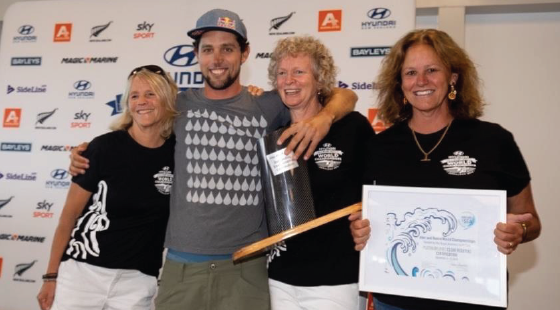
Giving Back to the Community
New Zealand participants were asked to bring gear from home that they no longer needed so it could be donated to younger Kiwi sailors. This unique initiative helps repurpose gear and encourages growth in the sport of sailing.
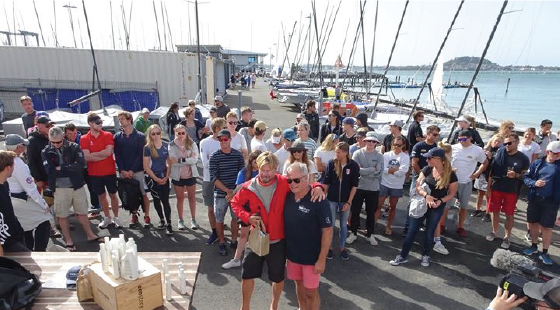
Finally, so that sailors and the public had a chance to support the local community, two beach clean-ups were organized prior to the regatta and promoted via the local community newsletter and other forms of local media. Clean Regatta organizers also collaborated with outside organizations to remove trash found by divers on the bottom of Okahu Bay. Each participant was sent a “thank you” note to recognize their efforts. Although beach clean-ups are not the solution to the plastic pollution crisis, they did provide helpful opportunities to communicate with the wider community about the importance of protecting our marine environment.


